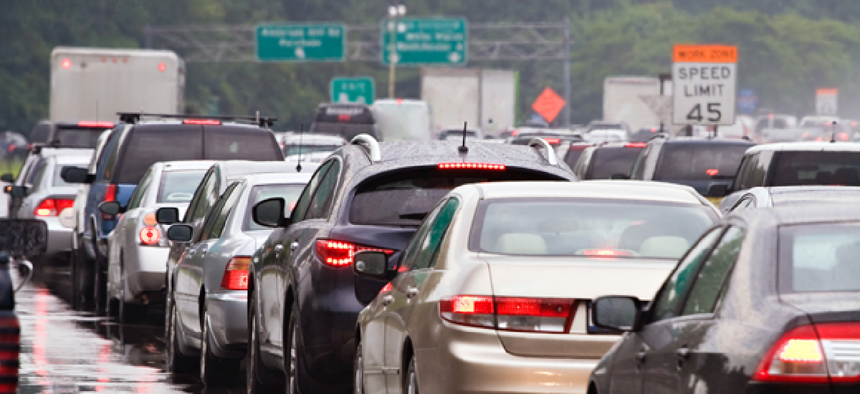Can cities influence individuals’ travel choices?


Connecting state and local government leaders
The Federal Highway Administration plans to study how real-time travel information, suggestions about alternative routes and monetary incentives might prompt travel choices that reduce congestion.
The Federal Highway Administration (FHWA) plans to study what factors influence travel decisions.
In a notice published Nov. 4 in the Federal Register, FHWA states that it plans a Data Collection for Smartphone Travel Incentives Study that will look at how insight into congestion levels affects people’s decisions about when and how to travel. It hopes to test different types and levels of encouragement and incentives to find out what influences decision-making.
“Such knowledge will help FHWA and state and local transportation departments to offer transportation services and engage the public in ways that minimize congestion and better serve travelers,” according to the notice that asks for comments on the study.
For the two-year investigation, FHWA wants 7,500 volunteers from up to 15 cities to install a smartphone app that would track their trips.
The app would engage volunteers in three main ways. The first would involve displaying “information tiles” that highlight the advantages of changing travel times or modes to reduce congestion. The second stage would feature “action tiles” that present specific actions travelers could take based on their past choices as well as show associated benefits, such as how much time they could save by leaving 30 minutes earlier or taking another bus route. Periodically, the app would survey travelers about their willingness to try the alternatives offered.
If the first two efforts result in no observable behavior change, incentives would kick in. To test their effectiveness, a reverse auction mechanism with a randomly generated award between 1 cent to $10 may be deployed. The app would ask users how willing they are to accept payment to change from their first travel choice to their second or third if that would reduce congestion. If how much they’re willing to accept is lower than the award payment amount, they would get the reward. If the reward is less, the user would continue with their first choice and no reward.
“When users make a change in travel mode or departure time in response to the study, an in-app micro survey around the specific trip taken may be administered, such as to confirm travel mode(s), to discern satisfaction, and to assess if users believe that in the future they will repeat any travel choice change that they had made,” the FHWA notice said.
To ensure that the choices participants get are relevant to them, they may be able to customize the output from the app to exclude choices or services they never want to use, such as taking the bus if they’re not comfortable doing it. What’s more, machine learning could enable the app to present options the user is more likely to see as attractive under specific trip circumstances, the notice stated.
The app might also have a proactive feature to encourage participants to use the app to indicate their travel destination, departure time and travel mode. That would account for travelers whose trip patterns vary and are therefore hard to predict with data, FHWA said.
“Learnings about the effects of the various treatments on individual travel decisions would expand the knowledge and tools available to policymakers to further engage travelers by providing information and offering incentives that are shown to yield more system-efficient travel choices,” according to the notice. “This will enable an assessment of the expected impacts of city- or metropolitan-level policy scenarios to encourage the use of apps that offer real-time travel information about a range of alternatives, and provide incentives such as through public-private partnerships (PPPs) that encourage travel choices that reduce congestion.”
Comments are due by Jan. 4, 2021.




